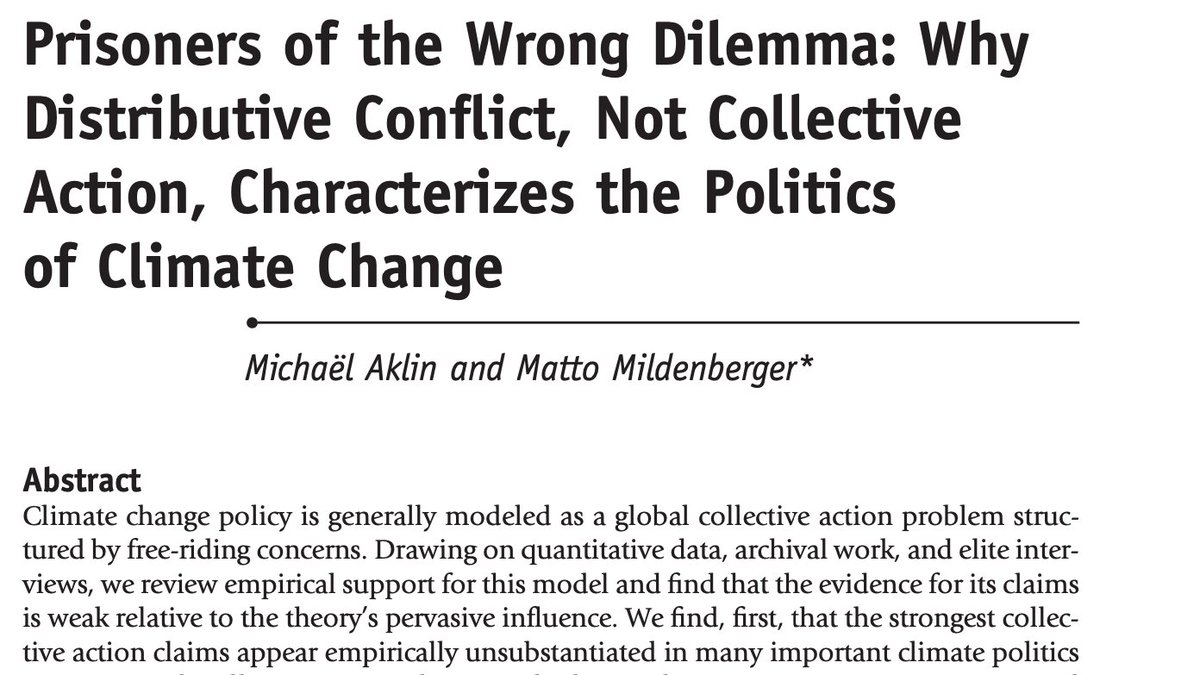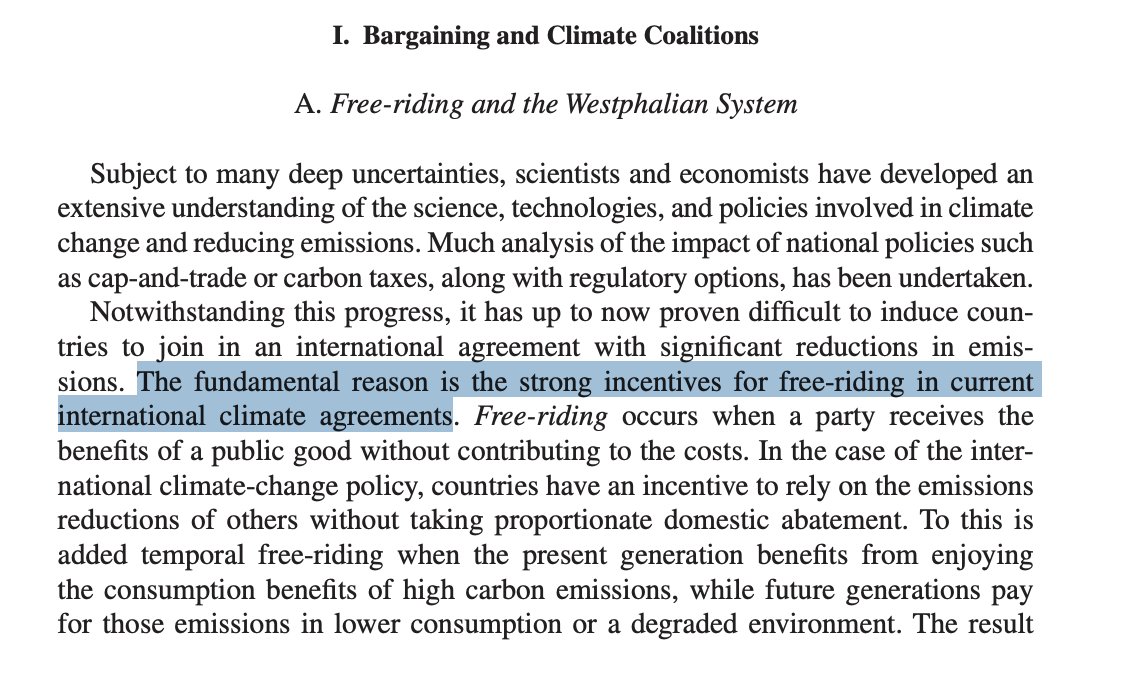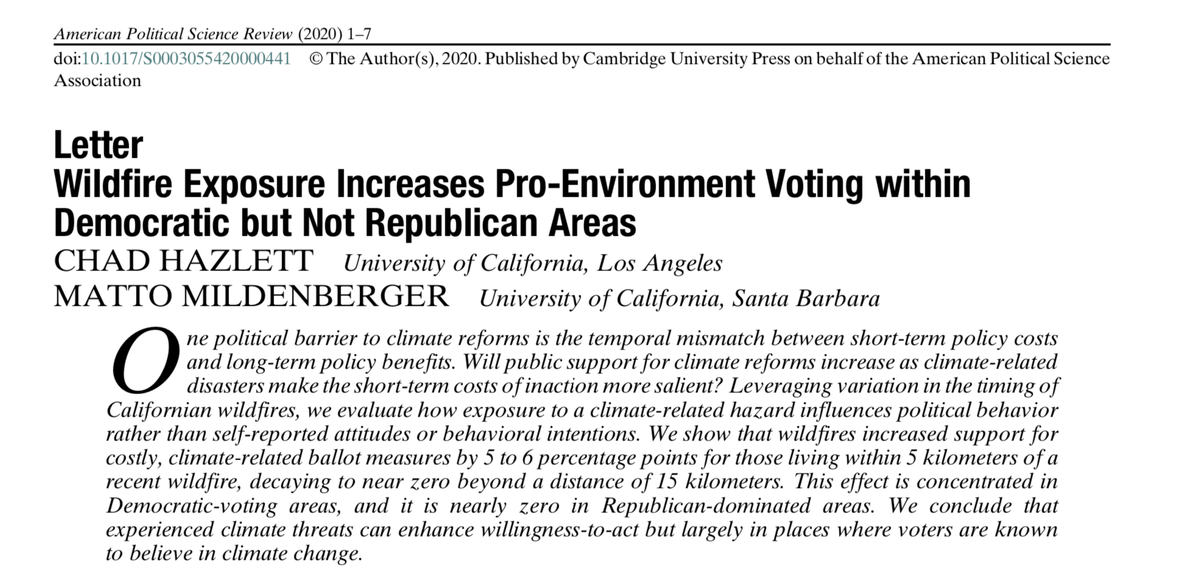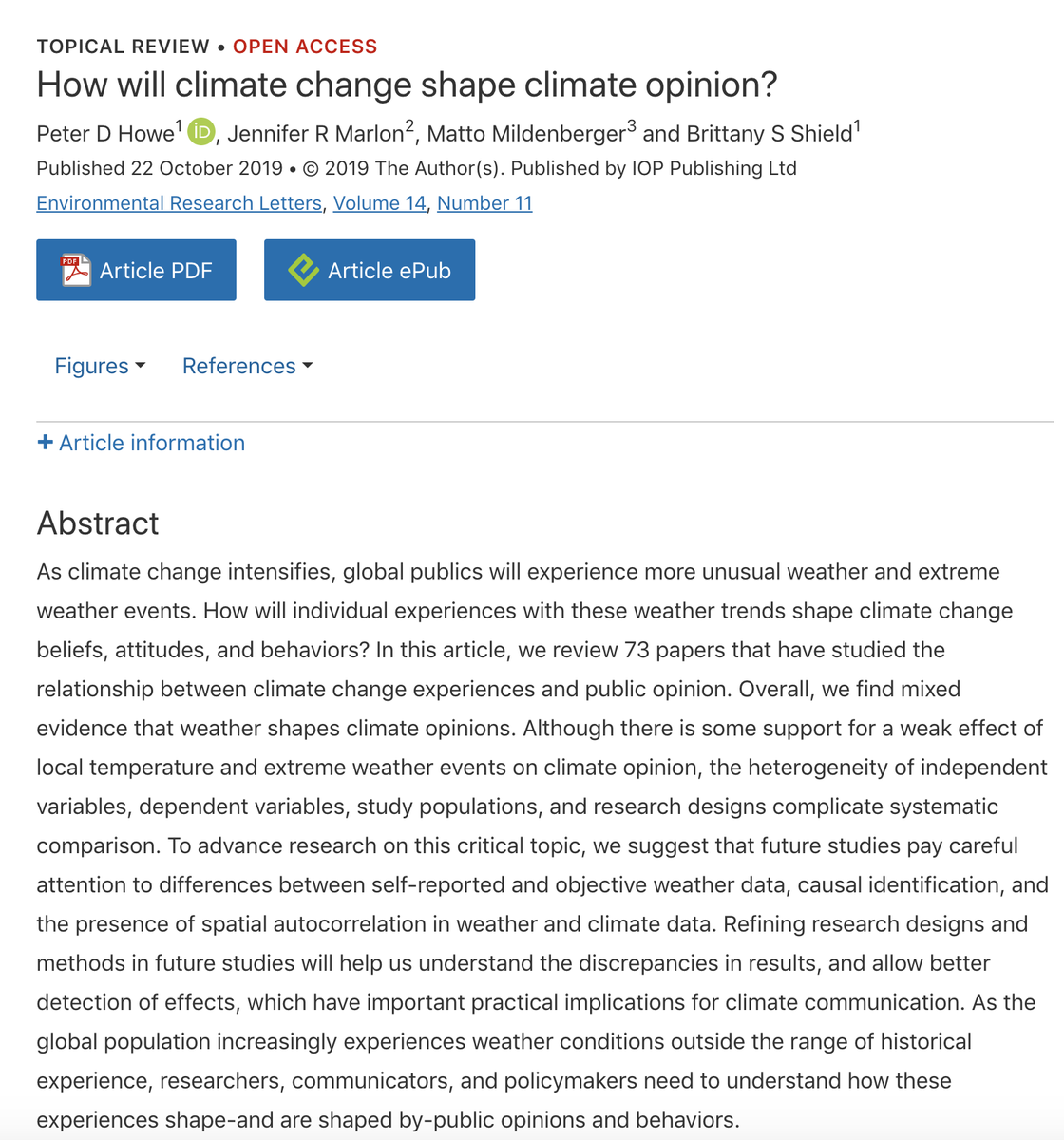This article is perhaps the most important I've read this year. h/t to @drvox. The take home: oil extraction is so profitable that even a carbon price of $200 per tonne would reduce emissions by only 4%. $600 (!) would only deliver 60%. 1/ papers.nber.org/tmp/57241-w260… 
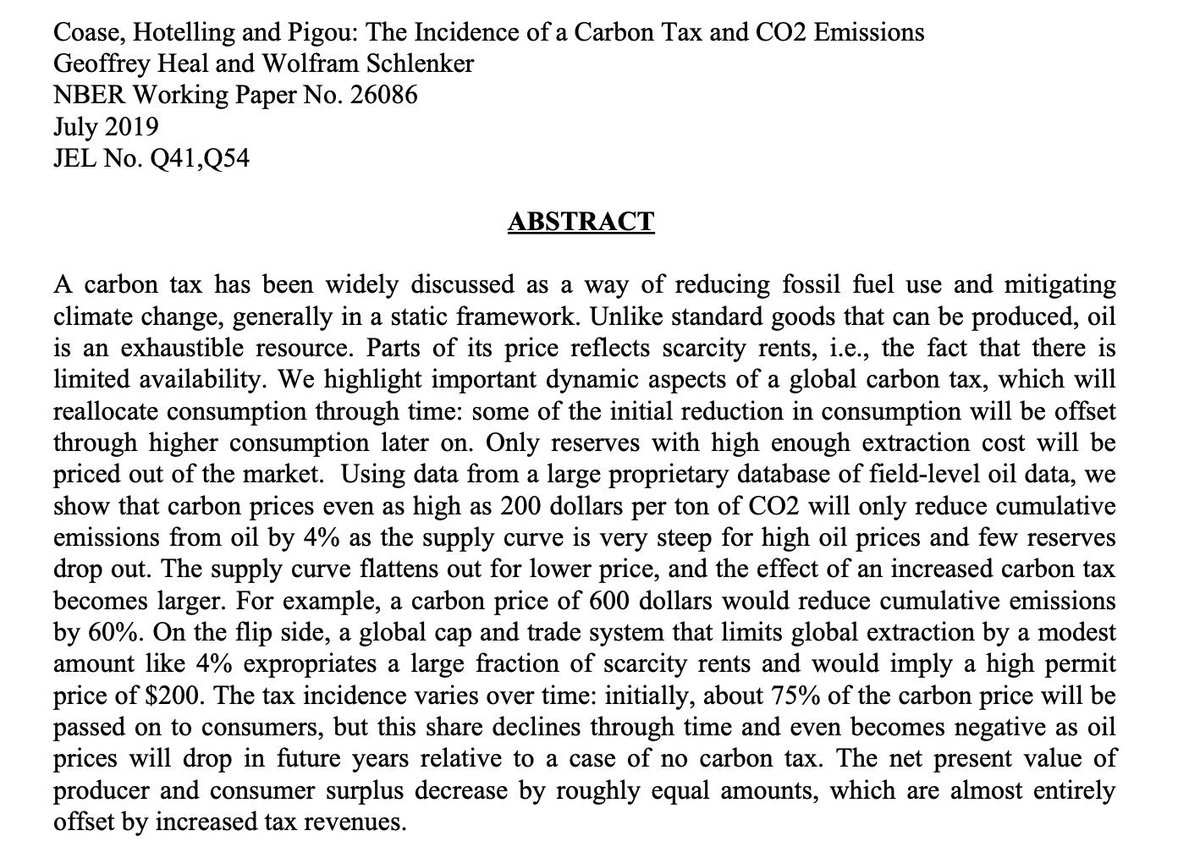
It is sobering to confront how inelastic fossil fuel extraction is to market pressures. And unfortunately these results match up perfectly with a case in my forthcoming book on carbon pricing: Norway 2/
Norway has one of the highest carbon prices in the world. It is one of only 5 countries with a carbon price that the World Bank classifies as consistent with the Paris agreement. 3/ 

For offshore platforms, the Norwegian carbon tax has existed since 1991. But in the nearly three decades since, the tax has had a negligible impact on Norwegian oil production. A few offshore platforms electrified their operations - and that is really it. 4/
Instead the carbon tax behaves more like a severance tax, letting the government capture slightly more of the rents associated with Norwegian oil. @BarryRabe has written about severances taxes recently in his excellent book: mitpress.mit.edu/books/can-we-p… 5/
In principle, a carbon tax should reduce profitability of extracting oil from marginal fields - but Norway simultaneously implemented policies to mitigate costs in mature fields: generous depreciation regimes for offshore platforms; tax deferrals until mature fields profited. 6/
Even a coalition government with strong environmentalists representation released a 2011 energy White Paper that proposed changes to investment rules to promote new development in the offshore sector. 7/
Political discussions around accelerating extraction in these fields proceeds with almost no recognition that these incentives counteract the marginal effects of the country's carbon price. 8/
In Norway and around the world, as Heal and Schlenker capture so well, the ongoing profitability of oil extraction is staggering. These are not industries that can be quietly taxed into oblivion. 9/9
• • •
Missing some Tweet in this thread? You can try to
force a refresh



